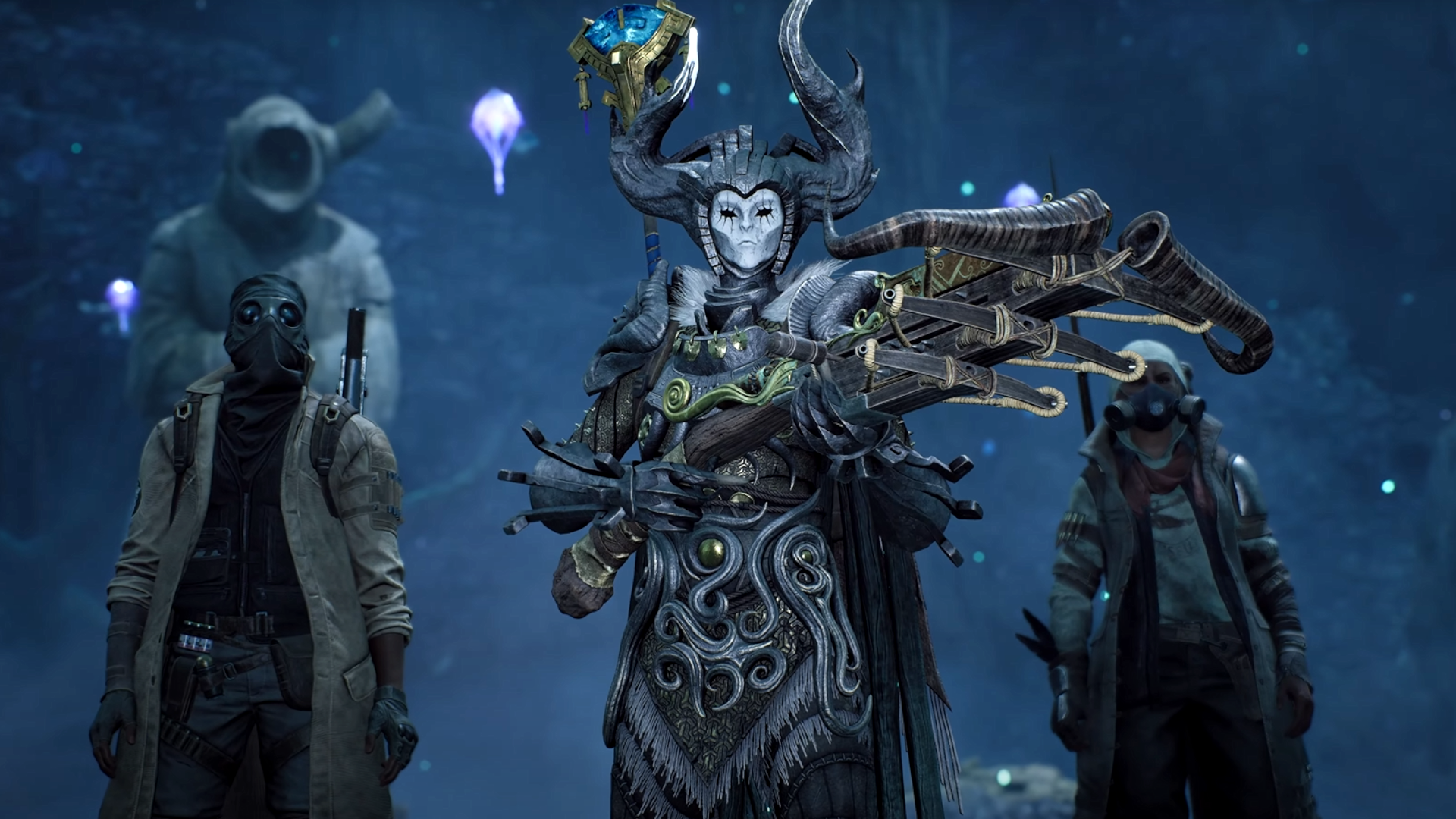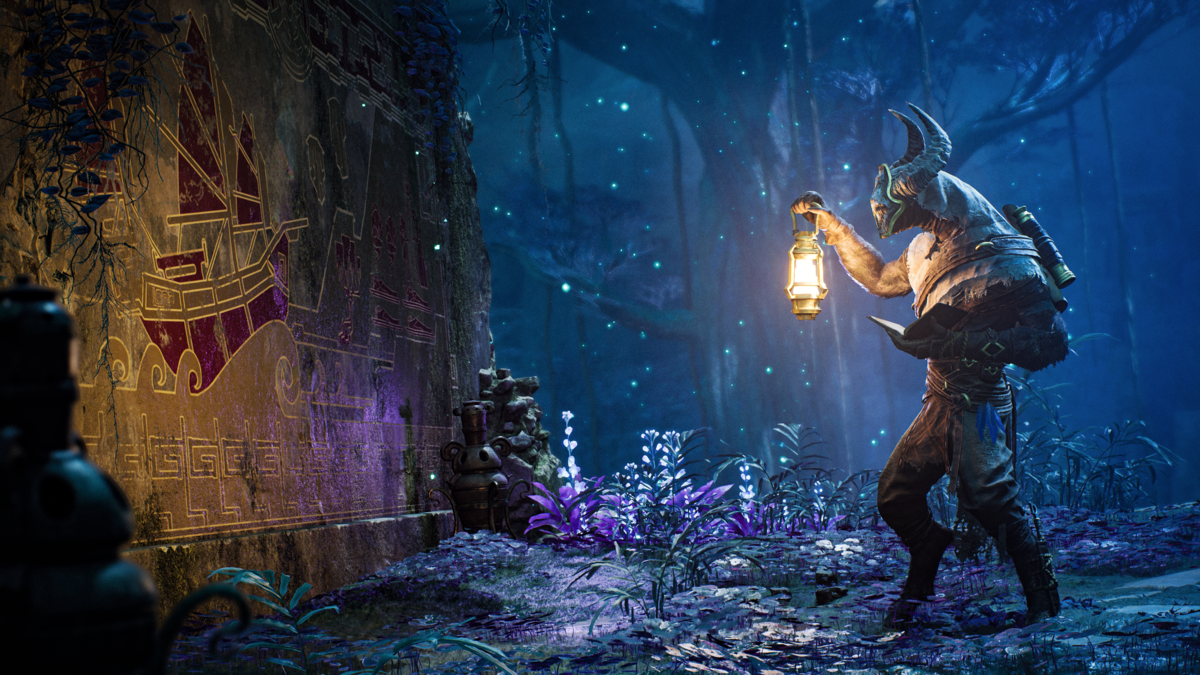'We try not to make it painful, except when it comes to skill': Remnant 2 design leads talk adding player-driven QoL features, and the task of making a player-friendly soulslike
How to make getting good feel great.

Despite the praise I have for it now, Remnant 2's launch wasn't pitch-perfect: The game released with some difficult performance issues, which have been slowly improved over time, but it also staggered out of its big red crystal with some mechanical sore spots.
A somewhat stingy resource economy, expensive respec costs, and a lack of loadouts stopped it (at first) from being the soulslike-slash-shooter ARPG mashup it was clearly aiming for. None of those things are a problem anymore, however, thanks to some timely updates in the game's opening months—ones which also introduced other quality-of-life features, like making Archetypes easier to unlock on your alt characters.
At the time, I remember being impressed by the pace of these updates. It's always difficult for a dev to suss out fair complaints from gripes—especially in a game like Remnant 2, that's meant to be difficult. Gunfire Games, however, seemed to pull it off pretty tidily.
Talking with both principal designer Ben Cureton and principal level designer Cindy To during a preview of the game's upcoming DLC earlier this week, I had a chance to ask them about the process of doing just that—starting with the team's reactivity to builds the player base has discovered.
I was like: Hm, I didn't think about that, but we did script it.
Ben Cureton
Cureton says that, while his team obviously throws plenty of intention behind Remnant 2's many items (the combination of which massively defines your build, like in an ARPG), the team also looks to the community for inspiration.
"Somebody made a build—it used the Ring of Spears, which is a weapon mod that puts a ring of spears around you, but you can throw the spears individually," each one of those flings counts as a skill activation, Cureton says, which plays nicely with certain items that trigger upon skill use. "I was like: Hm, I didn't think about that, but we did script it and say it was allowed."
From there, Cureton says that the team went: "what if we made some more on-skill activation trinkets, so we'll add some more, and all of a sudden that build is even more enhanced." Instead of seeing unintended interactions as exploits or mistakes, Gunfire Games tries to lean in when it can: "The community is massive in terms of helping us [enable more] builds."
Keep up to date with the most important stories and the best deals, as picked by the PC Gamer team.
As Cureton does battle with some deadly pottery, I bring up a funny glitch from the game's early days that inspired a later QoL improvement. For a little while, you could literally dodge the game's respec cost by backstepping in the middle of using an item—cancelling the animation that would otherwise consume the Orb of Undoing. This let you use it to respec without removing it from your inventory.
Gunfire Games would later make the Orb of Undoing a slightly more expensive, but unlimited-use item, and Cureton says the dodge glitch was a big part of the reason why:
"That was definitely a case of like: okay, well, they found their own quality of life upgrade for respeccing. And then we thought to ourselves: is it really a big deal to ask them to pay to respec, because what are they really getting out of it? … The freedom exists, but right now it's just locked through money. So we thought 'why don't we give them a larger upfront cost just a little more, and then it's permanent.'"
It's the same story when it comes to adding loadouts: "There's no reason to make hundreds of bespoke items, and then make it hard to use those items, right? We knew loadouts were [requested often], so we were like: 'when we have time (because we're always working on stuff) let's try to get that in there.'"
Cindy To agrees, adding: "[It's about] ensuring the game's longevity, right? … It's about the shelf-life of the game. We're not a live service game, but we want to make sure that our product can stay timeless and relevant for what it is, so people can just go in there and have a good time."
We're not a live service game, but we want to make sure that our product can stay timeless and relevant for what it is, so people can just go in there and have a good time.
Cindy To
That tracks for me. While I was impressed and excited by what I saw of The Forgotten Kingdom, I found myself having little to say about it, because it was all just… more of a good thing. More equipment, more character builds, more bosses, more environments, and a solid 8-hour campaign for 10 bucks. No frills, no major added systems: Just more Remnant 2, which I'm personally very pleased about.
"We've come across the struggles players have in other games," Cureton says, "and gone 'okay, well, we're gonna be a tough game for the majority of players, but what can we do to still make it player-focused?' … There's nothing stopping you [from playing co-op], it's just very easy. I pick up loot, you get it, EXP is shared. We try not to make it painful except when it comes to skill."

"It's about mastery, right?" Cindy To says. "You go in, you gotta get good—or tangentially, go get better gear, go get geared up, collect things, come back and try again." Any system that gets in the way of that, Gunfire Games rightfully chucks out the window.
The Forgotten Kingdom releases April 23, and will cost $10 to purchase on its own, or $25 for the bundle: which includes The Awakened King, The Forgotten Kingdom, and the as-yet-unannounced third DLC. If you're undecided, but want to play with a friend who snagged it, you can—you just won't be able to use any DLC-specific loot until you buy it.

Harvey's history with games started when he first begged his parents for a World of Warcraft subscription aged 12, though he's since been cursed with Final Fantasy 14-brain and a huge crush on G'raha Tia. He made his start as a freelancer, writing for websites like Techradar, The Escapist, Dicebreaker, The Gamer, Into the Spine—and of course, PC Gamer. He'll sink his teeth into anything that looks interesting, though he has a soft spot for RPGs, soulslikes, roguelikes, deckbuilders, MMOs, and weird indie titles. He also plays a shelf load of TTRPGs in his offline time. Don't ask him what his favourite system is, he has too many.

